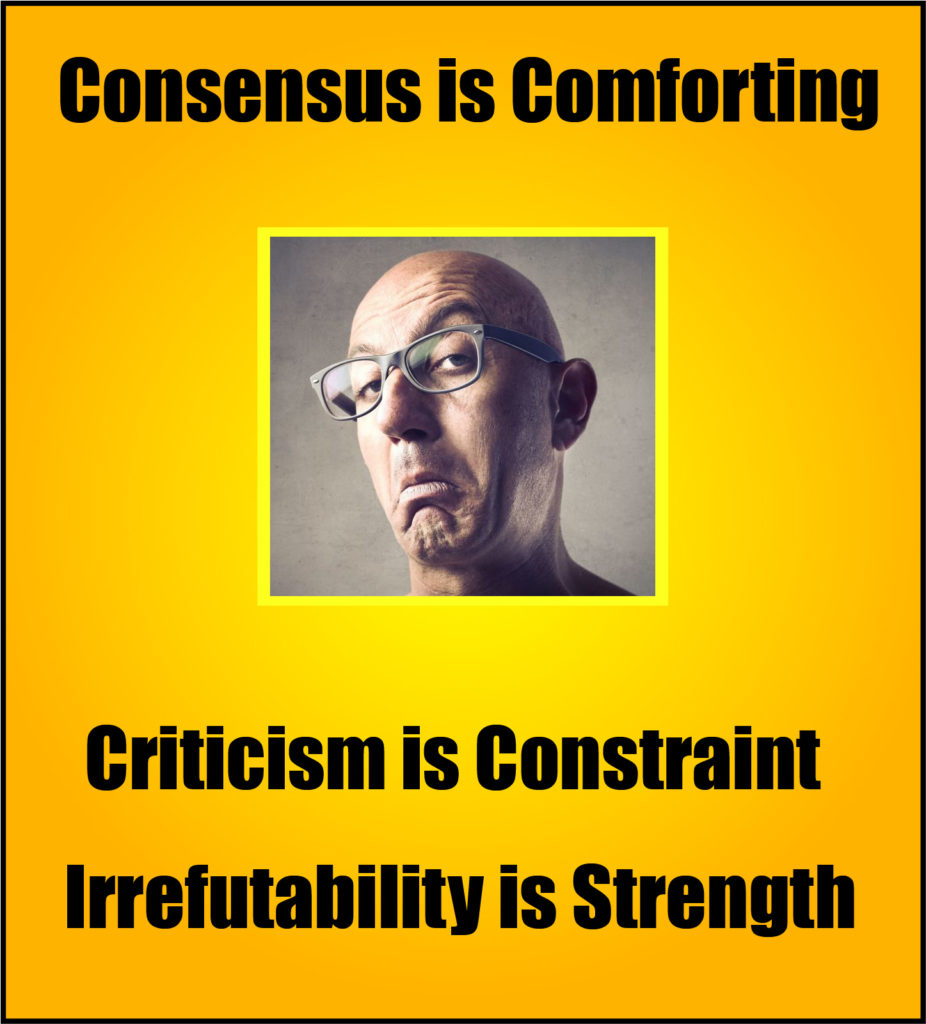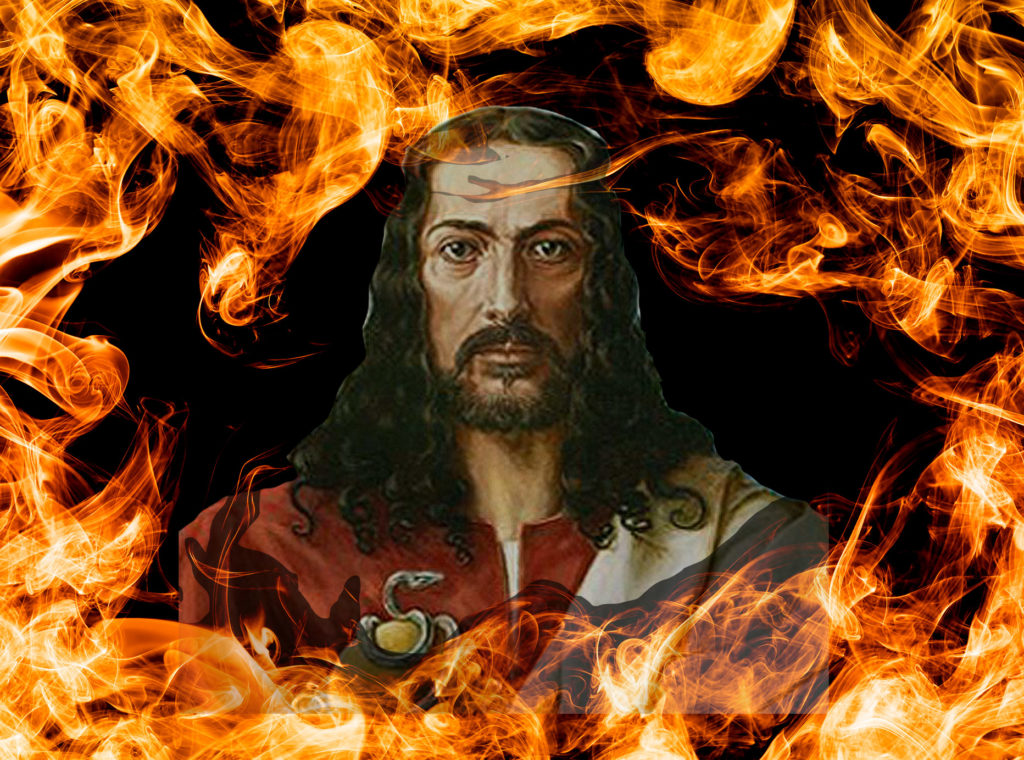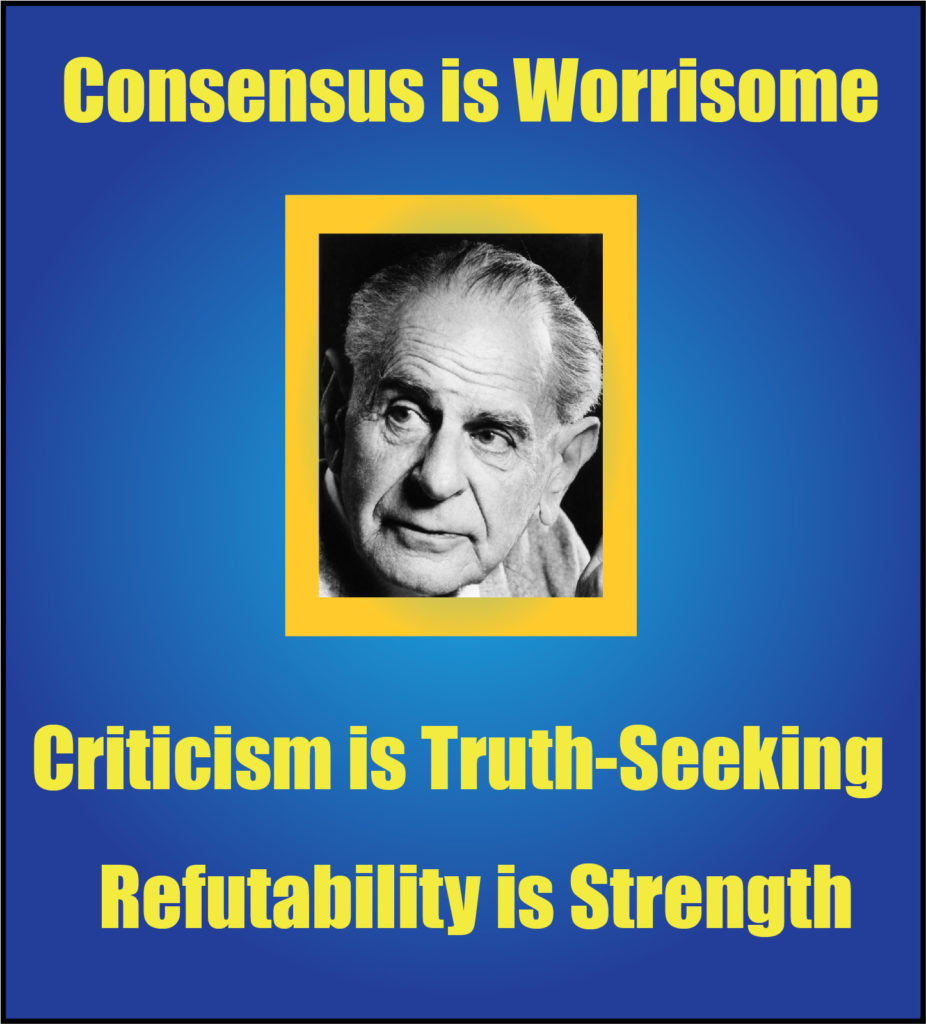“…we should be worried whenever there are no alternatives—whenever a dominant theory becomes too exclusive.”
–Popper (1994), p. 15
Thomas Kuhn (1967) argued that dogmatism is good for science. A normal scientist gets up to speed as quickly as possible by reading textbooks. He uncritically accepts the ruling dogma of the day, follows fads and trends to promote his career, and zealously defends his paradigm. His main redeeming quality is that, through his work, he sets up the conditions for a scientific revolution that obliterates his worldview, reinterprets his data, and recasts his models. Although the normal scientist will stubbornly fight to prevent a new theory from being accepted, in his last gasps of dogmatism he forces the revolutionary man (or woman) to strike to the heart of his knowledge and unleash a powerful new theory in its most potent form.
I have always been a big fan of Kuhn. I think he was correct that everyday science is dominated by “normal science” and “normal scientists.” I also think that Kuhn was correct about the role of normal science in the progress of science—namely, that normal science often plays a beneficial role in promoting scientific revolutions. According to Kuhn, normal science efficiently produces workers who move to the frontier of scientific knowledge and produce data and models that are rigid enough to serve as “sensitive indicators of anomaly.”
Kuhn was also correct that normal scientists typically ignore anomalies, or explain them away with ad hoc modifications of theory, and that anomalies become important only when a new paradigm is able to assimilate and resolve them. Kuhn was finally correct, in contrast to Popper (1952, 1957), that one can derive predictions from historical sequences that repeat themselves, such as those that characterize scientific revolutions.
Although Kuhn saw a benefit of normal science, he did not see the potentially enormous cost. Popper (1970), in contrast, saw something dangerous in the mindset of a normal scientist. Where the uncritical mindset of the normal scientist became too normal, an entire field might become overcome by intolerant dogmatism, the reliance on prior expectation over evidence; and scientific bigotry, the utter intolerance for views or opinions that differ from one’s own. In his paper “Normal Science and its Dangers,” Popper (1970) predicted that if normal science became too widespread, it would threaten scientific progress and even civilization itself.
Many normal scientists might be surprised that Popper had disdain for their attitude. It is important to emphasize that Popper thought that a normal scientist, as depicted by Kuhn, is somebody, “one ought to feel sorry for.” The normal scientist has been badly educated, is a victim of indoctrination, and accepts a new theory only when most of his colleagues already accept it.
If normal science is widespread, and there is a danger in normal science, then what does the scientific climate look like when normal science becomes the status quo? We might imagine the rise of a type of scientist who employs an uncritical attitude (Fig. 1), and who is not bold, but carefully hides his paradigm from refutation. To protect his reputation, he outwardly gives the appearance of a calm philosopher with an open mind, but behind closed doors, he denies a public audience to anyone with a perspective that threatens his own. He safeguards his reputation by forming censorship networks that police major publications.
Fig. 1. The attitude of the last scientist.

The philosopher Friedrich Nietzsche (1883) once envisioned a similar scenario of a world dominated by what he called the last men—people who do not dream, strive, or take risks, but “follow the herd” and do whatever is necessary to “stay warm.” By analogy, we might refer to the scientific equivalent of Nietzsche’s last men, who follow fads and trends, and who avoid doing anything bold in order to “stay funded,” as the last scientists. As Nietzsche’s Zarathustra (Fig. 2) might have said of these people:
Alas, the time is coming when a science will no longer give birth to a major discovery. Alas, the time of the most despicable scientist is coming, he that is no longer able to despise his own paradigm. Behold, I show you the last scientist!
“We are devoted to innovation! We are devoted to progress! We are devoted to advancement!” thus proclaims the last scientist, and he winks.
The field has become stagnant, and on it patrols the last scientist, who makes everything stagnant.
“We are devoted to novel subjects and conceptual unification,” says the last scientist, and he winks.
His policing is as clandestine as the KGB; the last scientist’s iron fist the strongest.
“I have held a standard from my first day to not publish papers of this format, ” says the last scientist, and he winks.
One still publishes articles, and makes them appear important. But one is careful not to upset one’s friend’s reputation.
“I apologize if I have read between the lines,” says the last scientist, and he winks.
One no longer honestly states the truth. One instead misrepresents new ideas as either old and true, or familiar and wrong—in either case diverting attention away from empirical evidence.
“A few properties of the field make it vulnerable to criticism, regardless of whether the criticism has merit,” says the most guarded, and he winks.
“No rebel and one community! Everybody wants the same, everybody is the same: whoever feels differently goes voluntarily to industry!”— say the most refined, and they wink.
Fig. 2. Zarathustra (Nietzsche 1883).

Last scientists are a threat to free thought because they promote a dogmatic tradition that appeals to prior theoretical expectation over empirical evidence; and a bigoted attitude that permits only one school or doctrine (Fig. 1).
Fig. 3. The attitude of the real scientist (see Popper 1963).

There are few things that are as precious to modern civilization and the continued progress of humanity as the scientific attitude (Fig. 3). Let us therefore guard ourselves against the specter of normal science becoming too normal! Let us not ask of truth whether it brings us funding or temporary oblivion! Let us honor our teachers by subjecting their cherished beliefs to critical discussion! Let us never forget what Zarathustra (Fig. 2) once said, “Go away from me! Be ashamed of me! Perhaps I deceived you…One repays a tender teacher poorly if one always remains a pupil. Only when you have denied me, will I return to you.”
References
Kuhn, T. S. 1967. The Structure of Scientific Revolutions: Second Edition. University of Chicago press.
Nietzsche 1883. Thus Spoke Zarathustra.
Popper, K. R. 1952. The Open Society and its Enemies. 1952. New York: Routledge.
——. 1957. The Poverty of Historicism. New York: Routledge.
——. 1963. Conjectures and Refutations. New York: Routledge.
——. 1970. Normal Science and its Dangers in Criticism and the Growth of Knowledge. I Lakatos and A Musgrave, Eds. (pp. 51-58). Cambridge University Press.
——. 1994. The Myth of the Framework. New York: Routledge.